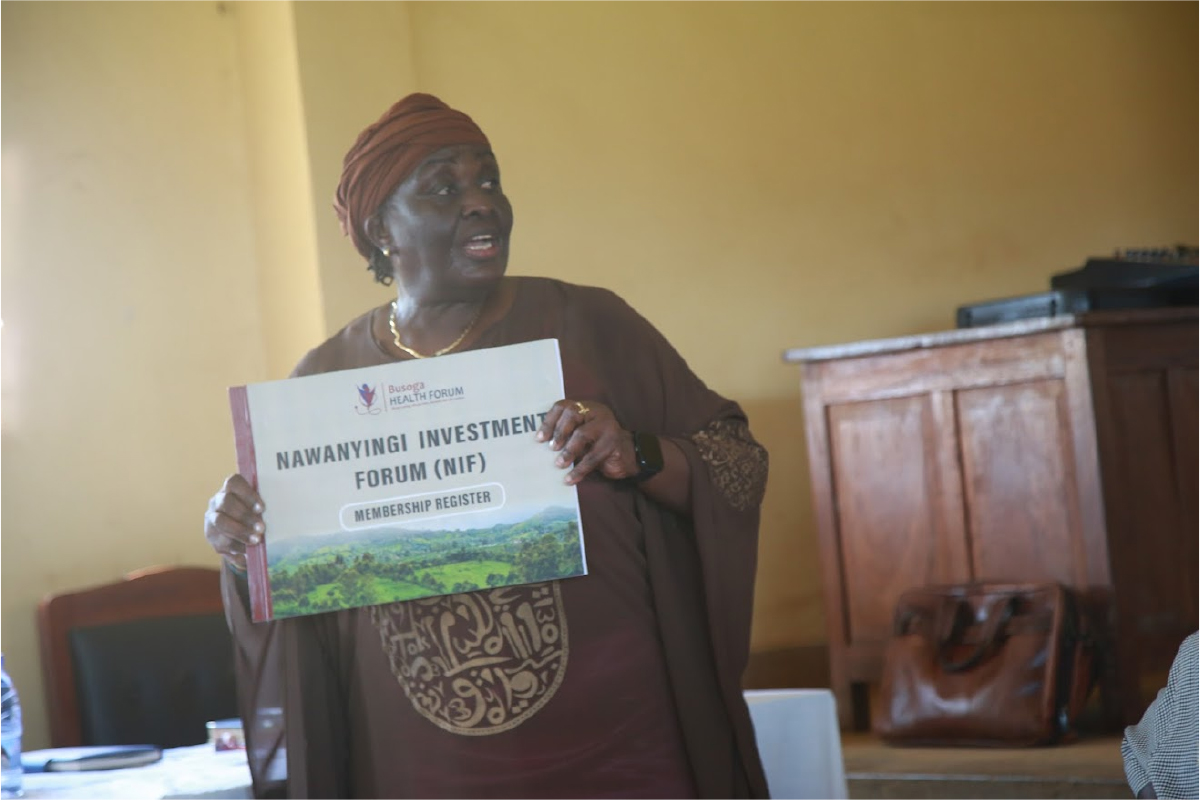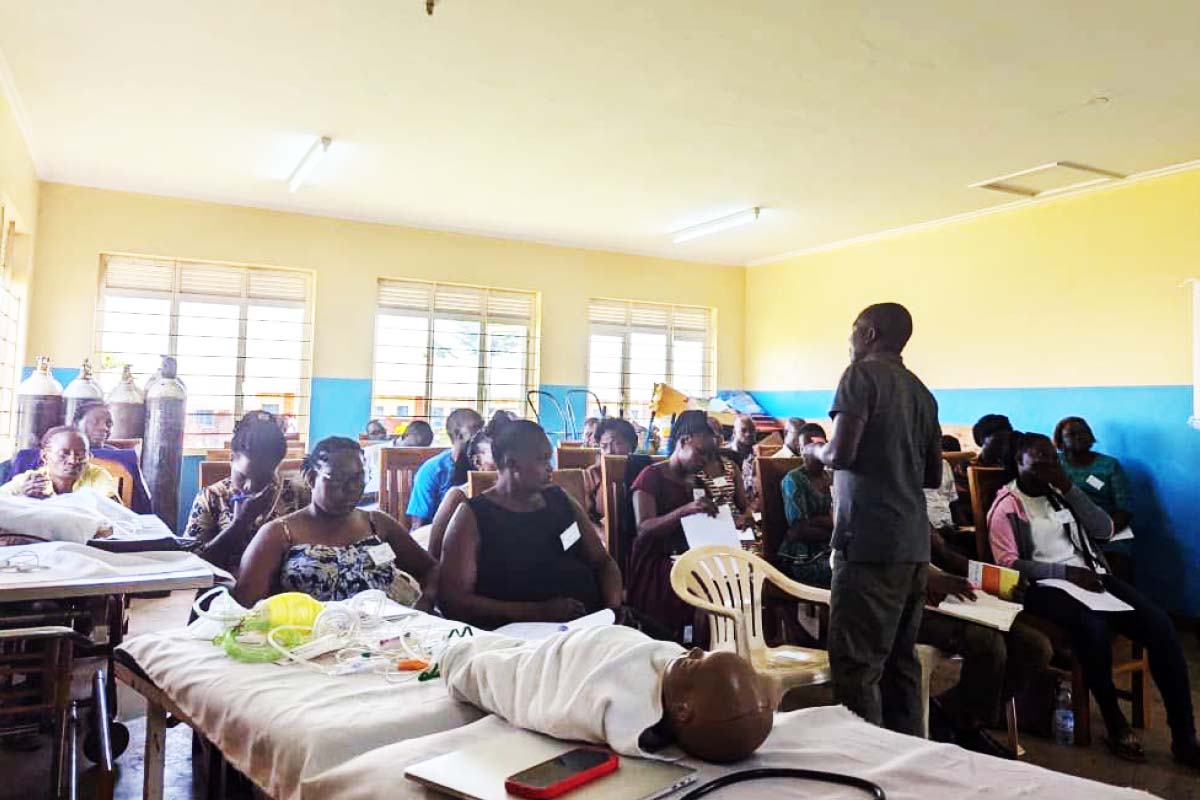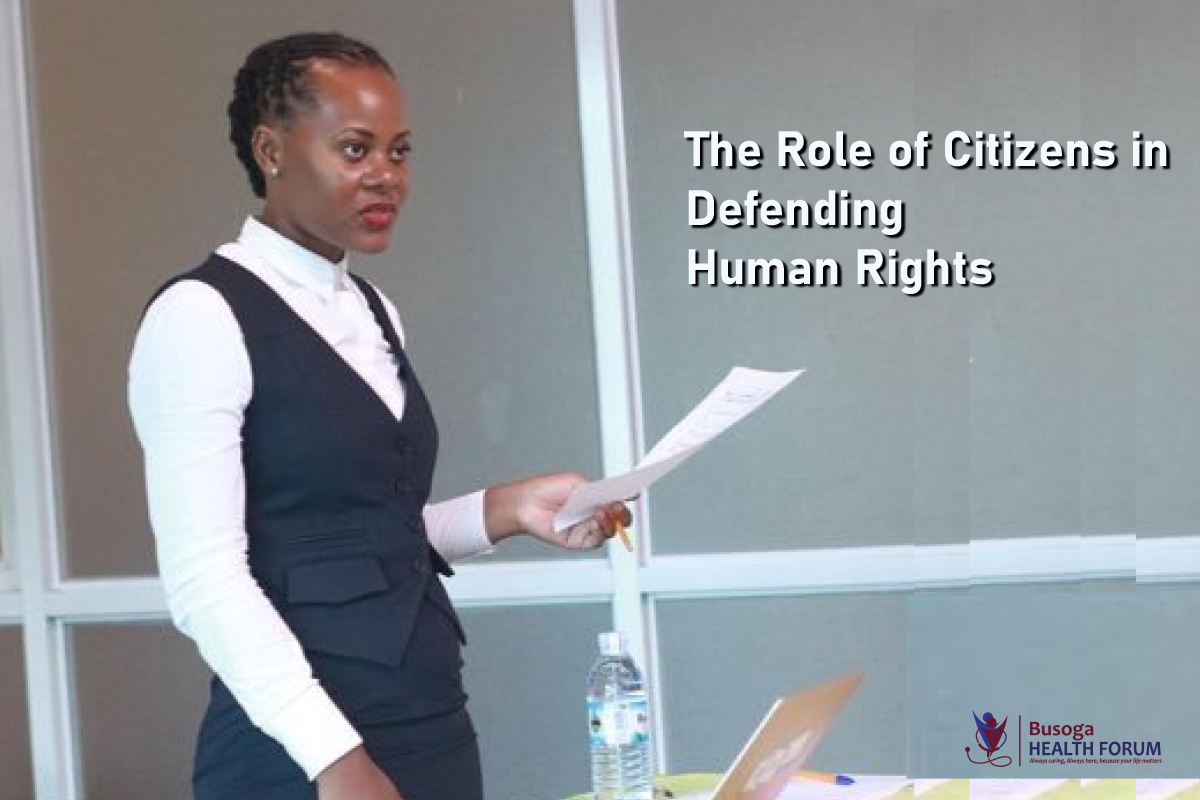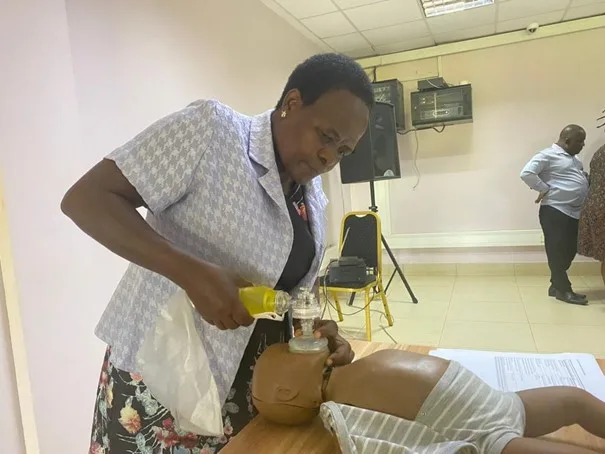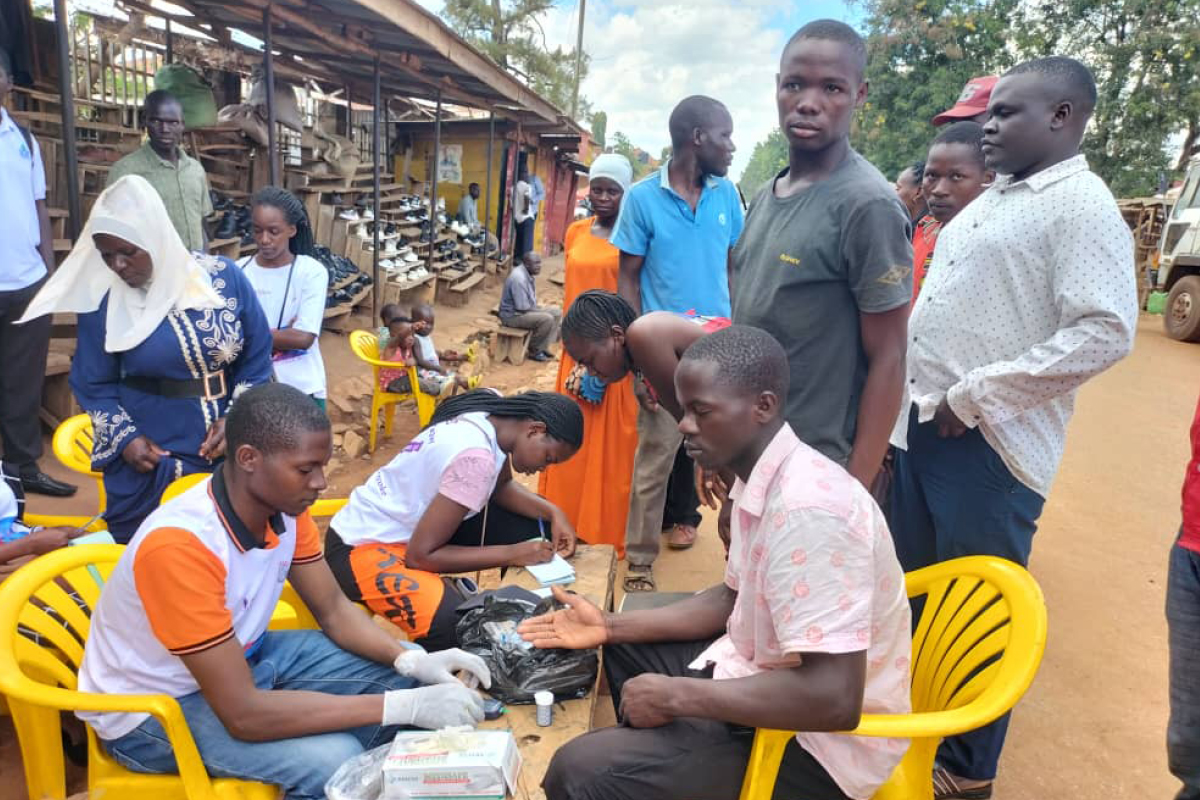
Addressing Increasing Cases of Stroke Patients in Busoga. BHF takes a Stand.
By: Tatumwa Desmond Benjamin
The burden of stroke is on the rise, affecting many individuals in Uganda. It stands as the sixth leading cause of death in the country. The healthcare system in Uganda is facing challenges, particularly in rural areas where the majority resides. Access to healthcare is limited due to long distances, and resources for stroke rehabilitation are insufficient, both financially and in terms of personnel.
In Uganda, the healthcare system comprises both public and private providers, functioning on a referral system. The initial contact with health services begins with the village health team, often requiring additional funds for extended care. Unfortunately, inequities persist, with only 71.73% of Ugandans residing within an hour’s walking distance from the nearest health center II.
Knowledge about stroke, including its impact, risk factors, and prevention strategies, is reported to be low in Uganda. The country faces further challenges in stroke rehabilitation and prevention due to the limited availability of centers equipped with necessary resources.
Every 29th of October is World Stroke Day, a global initiative to raise awareness about stroke. This year, Busoga Health Forum (BHF) partnered with the Stroke Foundation Uganda to commemorate the day in Iganga District under the theme “Together we are #Greater Than Stroke.”
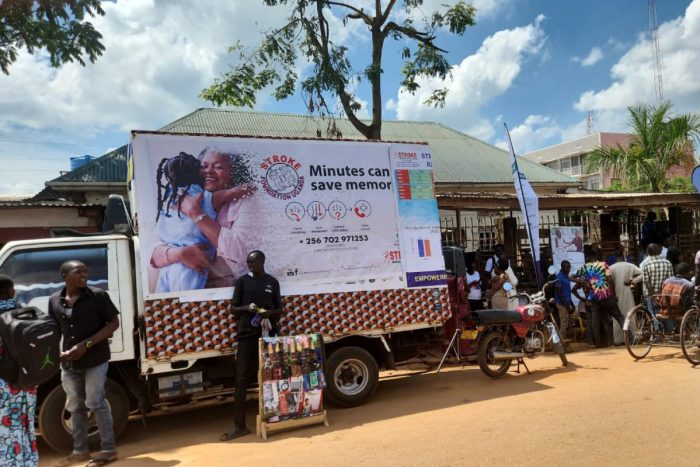
A Mobile truck locally designed to screen for Non Communicable Disease (NCDs)
This was successful through a collaboration, involving local fitness clubs, community development organizations, hospitals, and more. A three-day event kicked off with a drive around Iganga Municipality, where a mobile truck with doctors and nurses reached out to people at their workplaces. Screening for non-communicable diseases that predispose to stroke, including Blood Glucose Levels, Blood Pressure, and Body Mass Index, was conducted.
Following this outreach, a medical camp was organized to provide specialized care for stroke patients at Iganga General hospital. Dr. Mugoya Daudi, the Medical Superintendent of Iganga Hospital, expressed admiration for this unique initiative, acknowledging the gap it addresses in supporting more patients.
Dr. Ibrahim Bukenya, Director of Stroke Foundation Uganda, highlighted the aim of the activities – to increase awareness about stroke. Efforts were focused on educating the people of Iganga on stroke prevention through exercise and reducing salt consumption. Talks also emphasized recognizing signs using the BE-FAST algorithm (Balance, Eyes, Face, Arm, Speech, Time) to identify persons having an acute stroke.
During the three-day event, 650 patients benefited from the screening activities. The main day, the 29th, concluded the event with energetic activities at Iganga Municipal Council Primary School such as aerobics and a walk around Iganga Municipality.
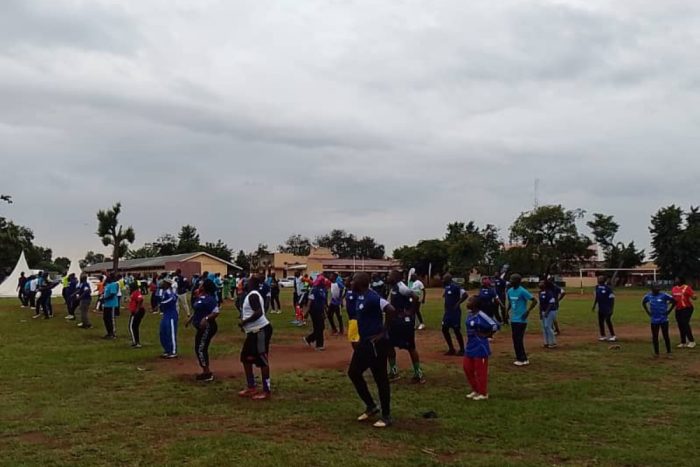
An aerobics session on the world stroke day at Iganga Municipal Council Primary school
Hajji Walubi Abubakar, the chief guest, called upon the Ministry of Health to consider incorporating neurologists in hospitals and physiotherapists in health center IV to address the increasing cases of strokes in Busoga. Dr. Kharim Mwebaza Muluya, Assistant District Health Officer (ADHO), added on the call, emphasizing the need for increased wages in districts to recruit more physiotherapists to handle the growing burden.
Mr. Moses Kyangwa, the Executive Director (CEO) of Busoga Health Forum, shed light on the broader consequences of stroke, affecting not only the individual but also the whole family and social networks. These consequences include increased burdens on caregivers and a worsened economic situation for all those affected.
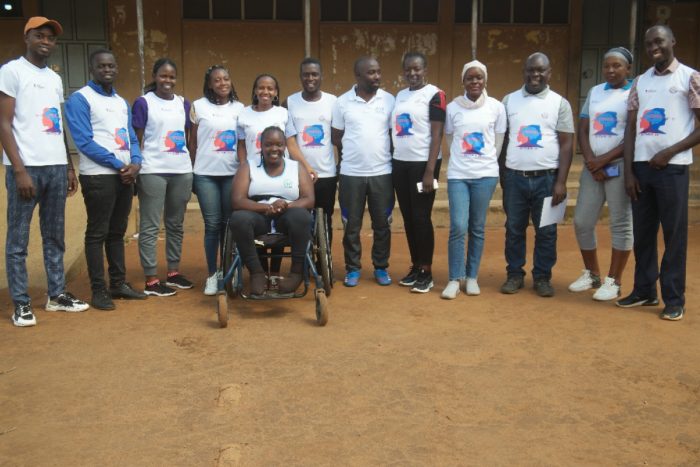
Busoga Health Forum and Stroke Foundation Uganda teams pose for a photo upon concluding the event
The CEO reaffirms his commitment to working with Stroke Foundation Uganda and the Stroke Rehabilitation Center on their ongoing interventions aiming not only to support stroke patients but also to provide crucial assistance to caregivers in the caring and rehabilitation process for stroke patients.

